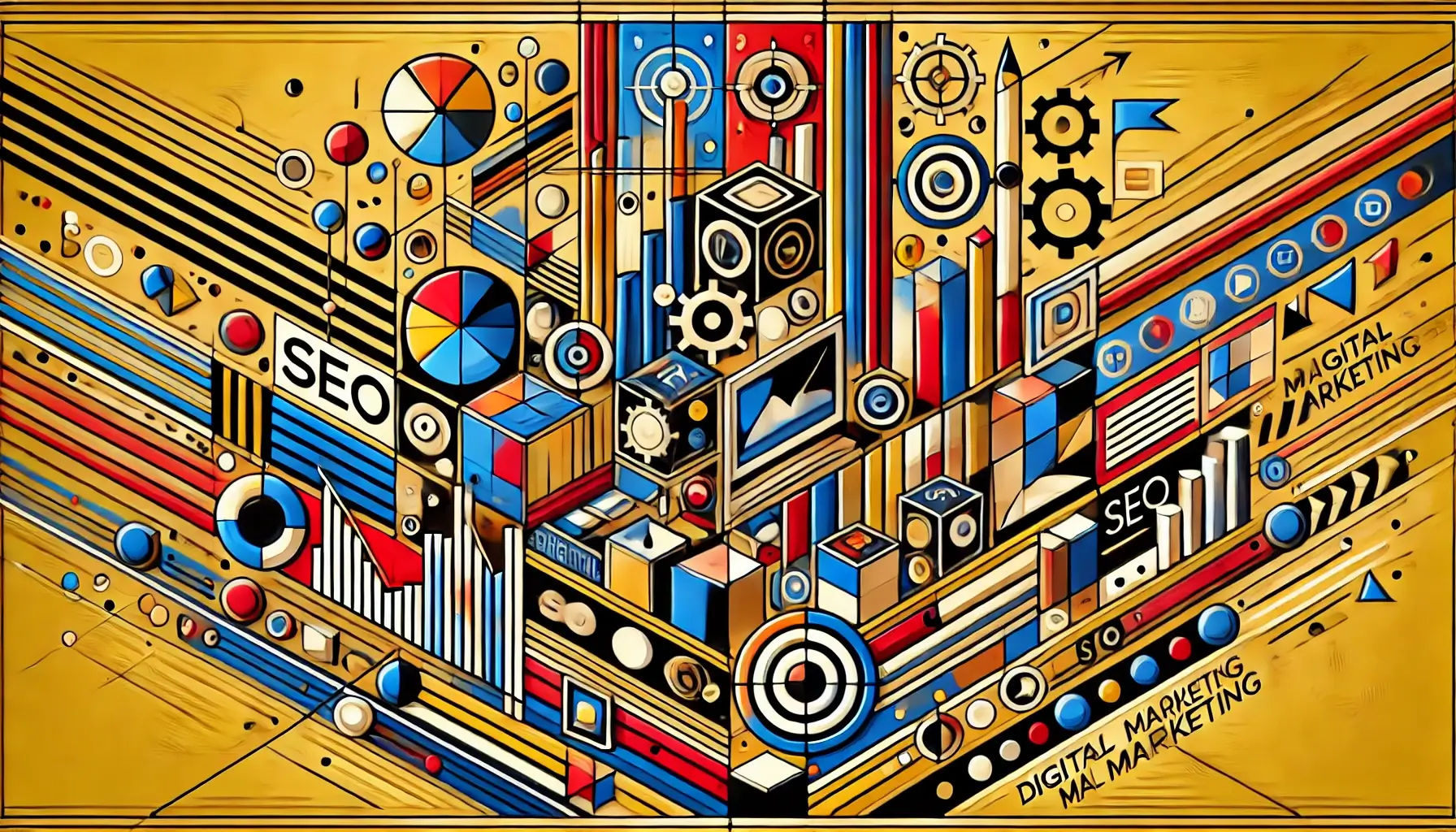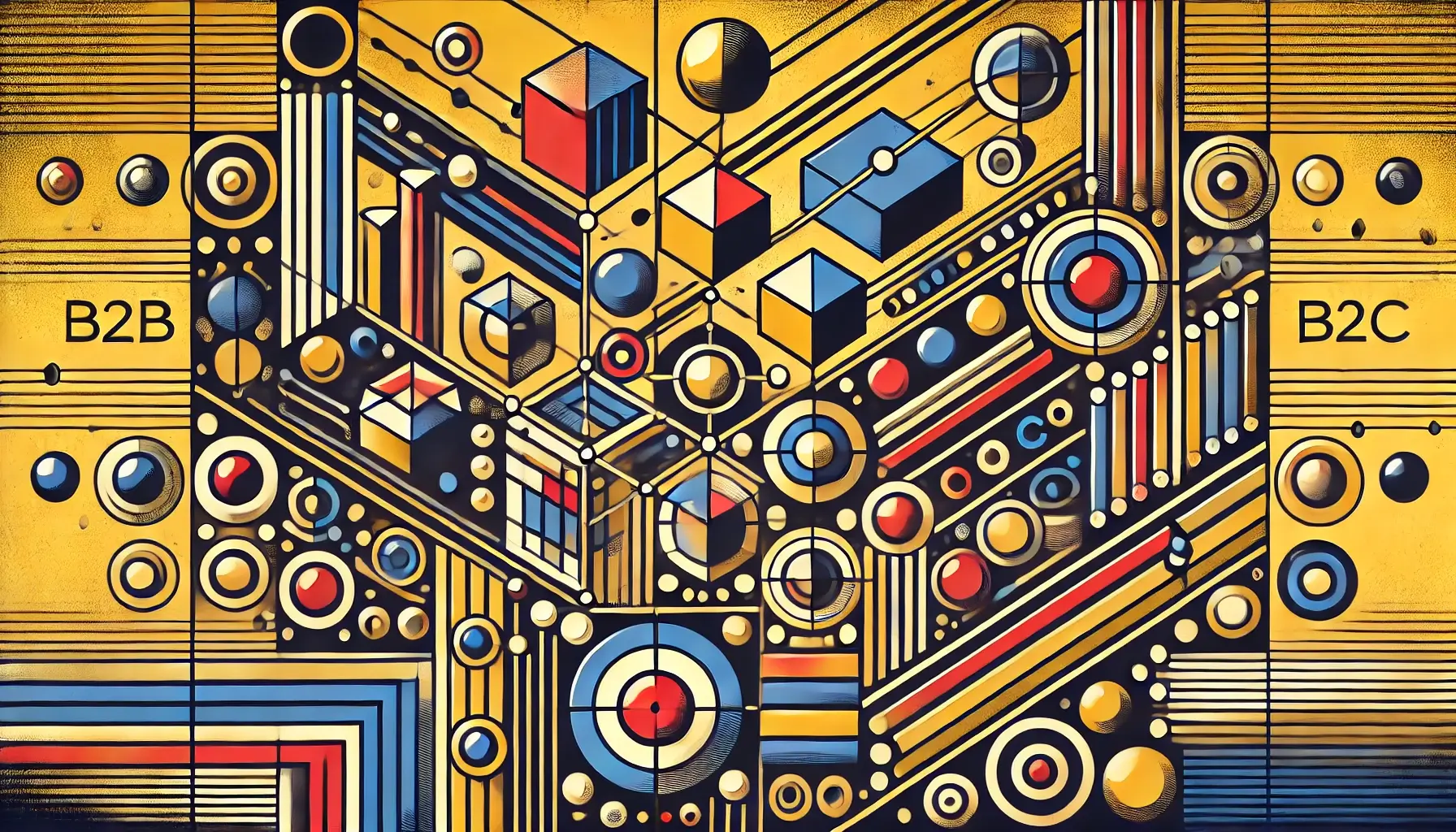B2B and B2C are two key concepts that shape strategies and tactics.
This article will explore what B2B and B2C mean, their differences, and their importance in today’s digital landscape.
We’ll also look at real-world success stories and provide actionable tips for tailoring your marketing efforts.
Understanding the Basics of Digital Marketing
 Digital marketing has transformed how businesses promote their products and services online.
Digital marketing has transformed how businesses promote their products and services online.
It encompasses strategies like:
- Search engine optimization (SEO)
- Social media marketing
- Content marketing
- Email marketing
- Mobile advertising
As technology evolves, so does digital marketing. Businesses must adapt to reach their target audiences effectively.
The Evolution of Digital Marketing
 Over the years, digital marketing has become increasingly sophisticated. Key developments include:
Over the years, digital marketing has become increasingly sophisticated. Key developments include:
- Social Media: Platforms like Facebook and Instagram allow businesses to engage with customers in real-time and build brand loyalty.
- SEO: Optimizing websites to rank higher in search results is crucial for attracting organic traffic.
- Content Marketing: Creating valuable content helps establish thought leadership and build trust.
- Personalized Email: Segmenting audiences and delivering targeted messages improves engagement.
- Mobile-Friendly: With the rise of smartphones, businesses must ensure a seamless mobile experience.
As digital marketing continues to evolve, staying up-to-date with the latest trends and technologies is essential.
Key Components of Digital Marketing
 A successful digital marketing strategy includes:
A successful digital marketing strategy includes:
- Target Audience: Identifying and understanding your ideal customers through buyer personas and market research.
- Marketing Strategies: Utilizing tactics like SEO, social media ads, and email campaigns to reach your audience.
- Sales Cycle: Mapping out the customer journey and delivering relevant content at each stage to guide prospects through the funnel.
Defining B2B and B2C Marketing

What is B2B Marketing?
B2B (business-to-business) marketing involves promoting products or services to other businesses.
The target audience includes decision-makers and key stakeholders within organizations.
B2B marketing focuses on:
- Building long-term relationships
- Driving client value
- Generating leads through content, email, and partnerships
What is B2C Marketing?
B2C (business-to-consumer) marketing promotes products and services directly to individual consumers.
Unlike B2B, B2C marketing emphasizes creating emotional connections and driving immediate purchases.
B2C marketing often uses:
- Persuasive advertising
- Influencer campaigns
- Social media engagement
- Personalized user experiences
Differences Between B2B and B2C in Digital Marketing

Target Audience
- B2B: Targets businesses and decision-makers within organizations.
- B2C: Targets individual consumers.
Marketing Strategies
- B2B: Longer sales cycles, focus on content marketing and thought leadership.
- B2C: Shorter sales cycles, emphasis on attention-grabbing visuals and persuasive copy.
Sales Cycle
- B2B: Typically longer, involves multiple touchpoints and stakeholders.
- B2C: Generally shorter and more transactional, focus on driving immediate purchases.
Importance of B2B and B2C in Digital Marketing

Why B2B Marketing is Essential
B2B marketing helps businesses:
- Establish credibility and trust
- Generate quality leads
- Secure long-term partnerships and repeat business
The Role of B2C Marketing
B2C marketing is vital for:
- Driving consumer demand and sales
- Building brand awareness and loyalty
- Cultivating brand ambassadors and word-of-mouth promotion
Conclusion
In summary, B2B and B2C are two essential aspects of digital marketing.
B2B focuses on building relationships with businesses, while B2C targets individual consumers.
Understanding the differences between B2B and B2C marketing is crucial for tailoring strategies to your target audience’s needs and preferences.
By leveraging the right tactics and staying up-to-date with digital marketing trends, businesses can achieve long-term success in both B2B and B2C domains.

 Digital marketing has transformed how businesses promote their products and services online.
Digital marketing has transformed how businesses promote their products and services online. Over the years, digital marketing has become increasingly sophisticated. Key developments include:
Over the years, digital marketing has become increasingly sophisticated. Key developments include: A successful digital marketing strategy includes:
A successful digital marketing strategy includes:

